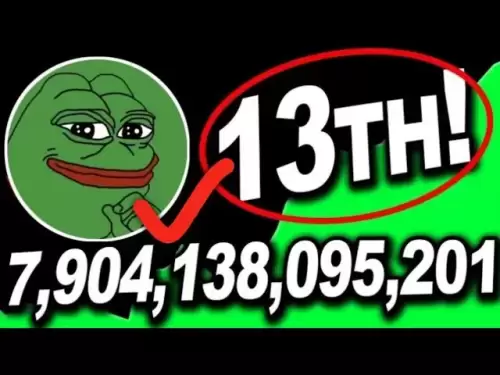-
 Bitcoin
Bitcoin $106,754.6083
1.33% -
 Ethereum
Ethereum $2,625.8249
3.80% -
 Tether USDt
Tether USDt $1.0001
-0.03% -
 XRP
XRP $2.1891
1.67% -
 BNB
BNB $654.5220
0.66% -
 Solana
Solana $156.9428
7.28% -
 USDC
USDC $0.9998
0.00% -
 Dogecoin
Dogecoin $0.1780
1.14% -
 TRON
TRON $0.2706
-0.16% -
 Cardano
Cardano $0.6470
2.77% -
 Hyperliquid
Hyperliquid $44.6467
10.24% -
 Sui
Sui $3.1128
3.86% -
 Bitcoin Cash
Bitcoin Cash $455.7646
3.00% -
 Chainlink
Chainlink $13.6858
4.08% -
 UNUS SED LEO
UNUS SED LEO $9.2682
0.21% -
 Avalanche
Avalanche $19.7433
3.79% -
 Stellar
Stellar $0.2616
1.64% -
 Toncoin
Toncoin $3.0222
2.19% -
 Shiba Inu
Shiba Inu $0.0...01220
1.49% -
 Hedera
Hedera $0.1580
2.75% -
 Litecoin
Litecoin $87.4964
2.29% -
 Polkadot
Polkadot $3.8958
3.05% -
 Ethena USDe
Ethena USDe $1.0000
-0.04% -
 Monero
Monero $317.2263
0.26% -
 Bitget Token
Bitget Token $4.5985
1.68% -
 Dai
Dai $0.9999
0.00% -
 Pepe
Pepe $0.0...01140
2.44% -
 Uniswap
Uniswap $7.6065
5.29% -
 Pi
Pi $0.6042
-2.00% -
 Aave
Aave $289.6343
6.02%
Is it a divergence when the OBV indicator hits a new high but the price does not rise?
OBV divergence occurs when volume trends conflict with price, signaling potential reversals, especially in volatile crypto markets.
Jun 17, 2025 at 11:15 am
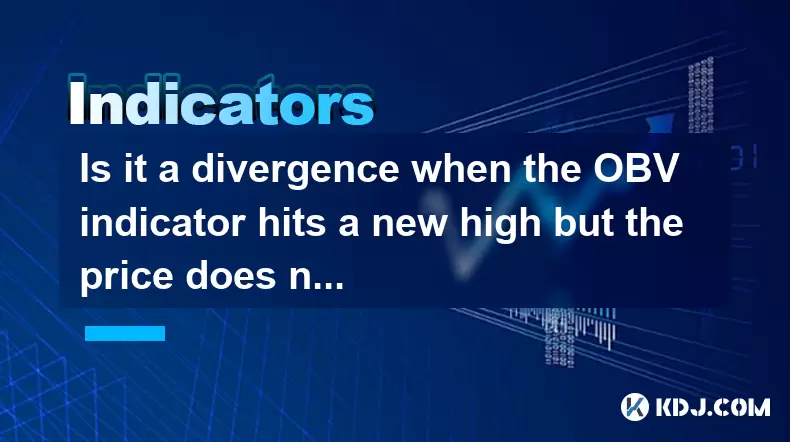
Understanding the On-Balance Volume (OBV) Indicator
The On-Balance Volume (OBV) is a momentum indicator used in technical analysis to predict changes in stock or cryptocurrency prices. It measures buying and selling pressure by adding volume on up days and subtracting volume on down days. The idea behind OBV is that volume often precedes price movement, so significant accumulation or distribution can be spotted through this metric.
In the context of cryptocurrencies like Bitcoin or Ethereum, where volatility is high and volume spikes are frequent, the OBV becomes an essential tool for traders. When the OBV hits a new high, it suggests that more buyers are entering the market, which could signal a potential bullish move.
What Is Divergence in Technical Analysis?
Divergence occurs when the price of an asset moves in one direction while a technical indicator moves in the opposite direction. This mismatch between price and indicator often signals weakening momentum and can hint at a possible reversal.
There are two main types of divergence: regular and hidden. Regular divergence is typically seen as a sign of trend reversal, while hidden divergence indicates trend continuation. In the case where the OBV makes a new high but the price does not follow suit, this is considered a classic example of regular bearish divergence.
How Does OBV Divergence Work in Cryptocurrency Trading?
When analyzing crypto charts, divergence between OBV and price action can offer early clues about shifts in market sentiment. For instance, if the price of a cryptocurrency fails to reach a new high despite the OBV doing so, it implies that although volume is increasing, it's not enough to push the price higher.
This situation may indicate that large players have been accumulating over time, but retail participation hasn't followed, resulting in stalled price movement. Traders often interpret this as a bearish signal, suggesting that the current uptrend might be losing strength.
- Observe the most recent swing highs in both price and OBV.
- Confirm whether the price has not reached a new high while OBV has.
- Look for volume patterns across these periods to validate the divergence.
- Cross-check with other indicators such as RSI or MACD to filter false signals.
Why OBV Divergence Can Be Misleading in Crypto Markets
Cryptocurrency markets are known for their erratic behavior and susceptibility to news-driven volatility. As a result, relying solely on OBV divergence without considering external factors can lead to misinterpretation.
For example, a new high in OBV might occur due to a sudden spike in volume from a whale transaction or exchange listing, rather than genuine market interest. If the broader market lacks conviction, the price won’t rise accordingly, creating what appears to be a divergence but isn't necessarily indicative of a reversal.
Moreover, liquidity conditions on certain exchanges can distort volume readings, especially for smaller altcoins. In such cases, OBV may not reflect real buying pressure accurately, leading to misleading signals.
Practical Steps to Identify and Trade OBV Divergence
To effectively use OBV divergence in your trading strategy, you must go beyond just identifying the pattern and incorporate additional tools and filters.
- Add the OBV indicator to your charting platform (e.g., TradingView).
- Identify clear peaks and troughs in both price and OBV.
- Draw trendlines connecting OBV highs/lows and compare them with those on the price chart.
- Use candlestick patterns or moving averages to confirm trend weakness.
- Apply risk management techniques like stop-loss orders and position sizing.
It’s also crucial to analyze multiple timeframes. A divergence visible on the 1-hour chart may not be present on the 4-hour or daily chart. Always check for confluence across different timeframes before making a trade decision.
Common Mistakes Traders Make With OBV Divergence
Many traders jump into trades based solely on OBV divergence without confirming the validity of the signal. One common mistake is assuming that every divergence leads to a reversal, which isn't always true.
Another pitfall involves using OBV on assets with inconsistent volume data. For instance, some decentralized exchanges do not report accurate volume figures, making OBV less reliable. Additionally, failing to adjust for gaps or sudden price jumps can distort the OBV line, causing confusion.
Traders should avoid acting on divergence during major news events or halving cycles unless they fully understand how such events historically affect volume and price behavior.
Frequently Asked Questions
Q: Can OBV divergence appear in both bullish and bearish scenarios?
Yes, OBV divergence can appear in both directions. A bullish divergence occurs when the price makes a lower low but the OBV makes a higher low, indicating strengthening buying pressure. Conversely, a bearish divergence happens when the price makes a higher high but the OBV makes a lower high, signaling weakening momentum.
Q: How reliable is OBV divergence in predicting price reversals in crypto markets?
While OBV divergence can provide valuable insights, it is not 100% reliable. Due to the volatile and often manipulated nature of crypto markets, divergence should be used alongside other confirmation tools like candlestick patterns, support/resistance levels, and volume analysis.
Q: Should I ignore OBV divergence if it appears on a low-volume altcoin?
It’s generally advisable to approach OBV divergence cautiously when dealing with low-volume altcoins. These assets are prone to inaccurate volume reporting and sudden whale movements, which can distort the OBV reading. Consider verifying divergence with order book depth or on-chain metrics before making decisions.
Q: What timeframe works best for spotting OBV divergence in crypto trading?
The effectiveness of OBV divergence varies across timeframes. Short-term traders often rely on 1-hour or 4-hour charts for quick entries, while longer-term investors prefer daily or weekly charts for more robust signals. It’s best to analyze divergence across multiple timeframes to find confluence before executing a trade.
Disclaimer:info@kdj.com
The information provided is not trading advice. kdj.com does not assume any responsibility for any investments made based on the information provided in this article. Cryptocurrencies are highly volatile and it is highly recommended that you invest with caution after thorough research!
If you believe that the content used on this website infringes your copyright, please contact us immediately (info@kdj.com) and we will delete it promptly.
- 2025-W Uncirculated American Gold Eagle and Dr. Vera Rubin Quarter Mark New Products
- 2025-06-13 06:25:13
- Ruvi AI (RVU) Leverages Blockchain and Artificial Intelligence to Disrupt Marketing, Entertainment, and Finance
- 2025-06-13 07:05:12
- H100 Group AB Raises 101 Million SEK (Approximately $10.6 Million) to Bolster Bitcoin Reserves
- 2025-06-13 06:25:13
- Galaxy Digital CEO Mike Novogratz Says Bitcoin Will Replace Gold and Go to $1,000,000
- 2025-06-13 06:45:13
- Trust Wallet Token (TWT) Price Drops 5.7% as RWA Integration Plans Ignite Excitement
- 2025-06-13 06:45:13
- Ethereum (ETH) Is in the Second Phase of a Three-Stage Market Cycle
- 2025-06-13 07:25:13
Related knowledge
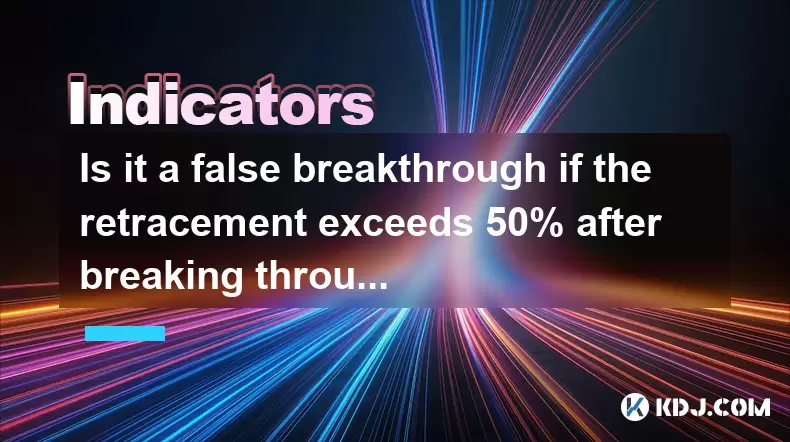
Is it a false breakthrough if the retracement exceeds 50% after breaking through the platform?
Jun 17,2025 at 08:01pm
Understanding Breakouts and Retracements in Cryptocurrency TradingIn cryptocurrency trading, breakouts refer to when the price of an asset moves beyond a defined support or resistance level with increased volume. These events often attract traders looking to capitalize on momentum. However, not all breakouts are valid. A false breakout, also known as a ...
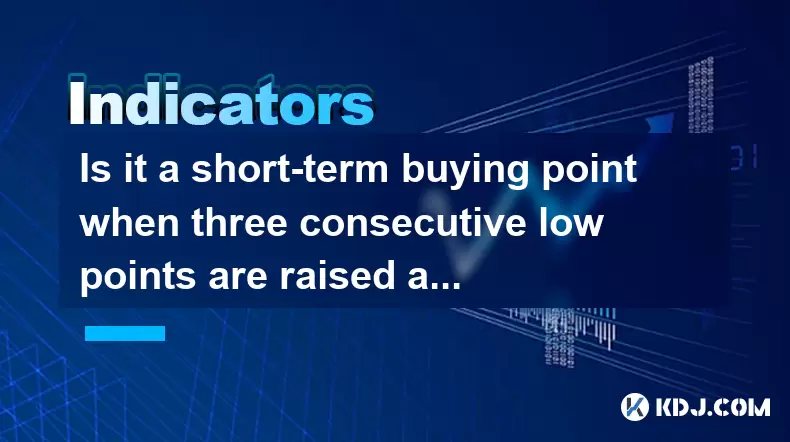
Is it a short-term buying point when three consecutive low points are raised at the 30-minute level?
Jun 17,2025 at 08:14pm
Understanding the Three Consecutive Low Points PatternIn technical analysis, identifying patterns in price movements is essential for making informed trading decisions. One such pattern that traders often observe is when three consecutive low points are raised within a specific timeframe — in this case, the 30-minute chart. This pattern suggests a poten...
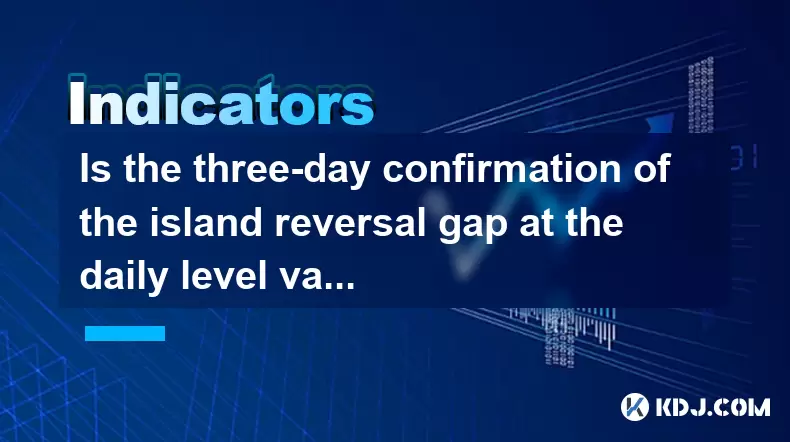
Is the three-day confirmation of the island reversal gap at the daily level valid?
Jun 17,2025 at 09:49pm
Understanding the Island Reversal Gap in Cryptocurrency TradingIn cryptocurrency trading, technical analysis plays a pivotal role in identifying potential market reversals. One such pattern is the island reversal gap, which signals a possible trend change. This pattern consists of a gap followed by a period of consolidation or sideways movement and then...
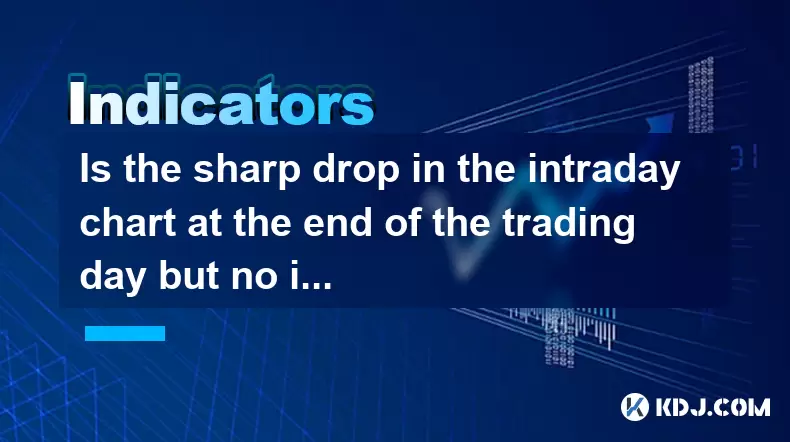
Is the sharp drop in the intraday chart at the end of the trading day but no increase in volume a trap to sell?
Jun 17,2025 at 08:35pm
Understanding the Intraday Chart DynamicsIn cryptocurrency trading, intraday charts are widely used by traders to analyze short-term price movements. These charts display price fluctuations within a single trading day and help traders make informed decisions based on real-time data. One common phenomenon observed is a sharp drop in price near the end of...
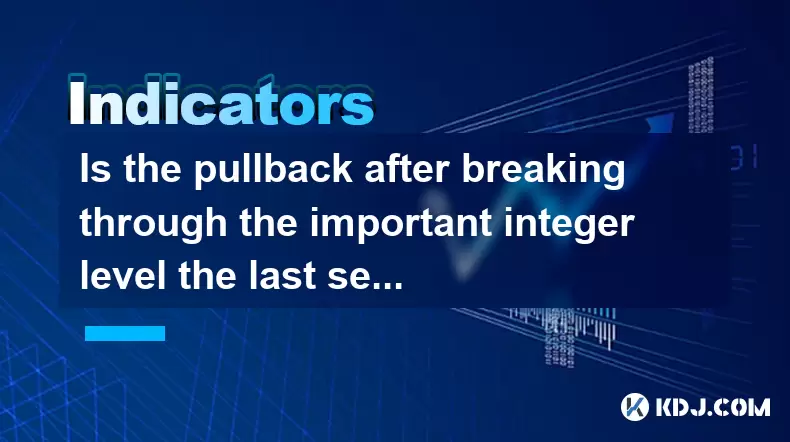
Is the pullback after breaking through the important integer level the last selling point?
Jun 17,2025 at 08:57pm
Understanding Important Integer Levels in Cryptocurrency TradingIn the world of cryptocurrency trading, certain price levels hold significant psychological and technical importance. These are commonly referred to as important integer levels—such as $10,000 for Bitcoin or $1,000 for Ethereum. These levels often act as strong support or resistance zones d...
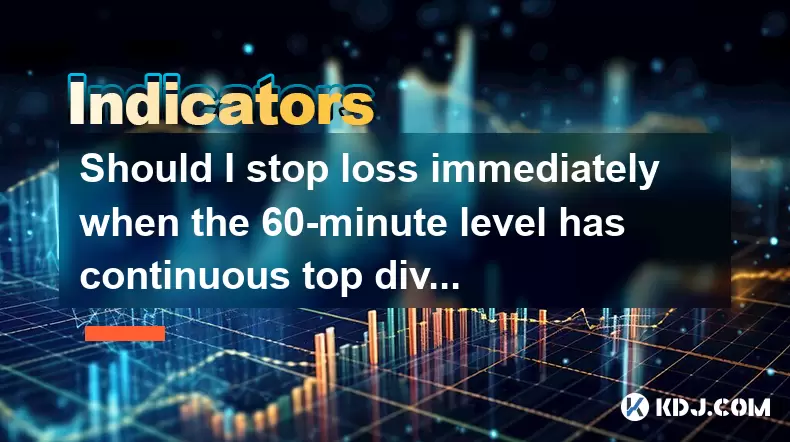
Should I stop loss immediately when the 60-minute level has continuous top divergence?
Jun 17,2025 at 05:28pm
Understanding Top Divergence in the 60-Minute ChartIn cryptocurrency trading, top divergence refers to a technical signal where the price of an asset makes higher highs while the indicator (often RSI or MACD) makes lower lows. This is commonly interpreted as a sign of weakening momentum and potential reversal. When this occurs on the 60-minute chart, it...

Is it a false breakthrough if the retracement exceeds 50% after breaking through the platform?
Jun 17,2025 at 08:01pm
Understanding Breakouts and Retracements in Cryptocurrency TradingIn cryptocurrency trading, breakouts refer to when the price of an asset moves beyond a defined support or resistance level with increased volume. These events often attract traders looking to capitalize on momentum. However, not all breakouts are valid. A false breakout, also known as a ...

Is it a short-term buying point when three consecutive low points are raised at the 30-minute level?
Jun 17,2025 at 08:14pm
Understanding the Three Consecutive Low Points PatternIn technical analysis, identifying patterns in price movements is essential for making informed trading decisions. One such pattern that traders often observe is when three consecutive low points are raised within a specific timeframe — in this case, the 30-minute chart. This pattern suggests a poten...

Is the three-day confirmation of the island reversal gap at the daily level valid?
Jun 17,2025 at 09:49pm
Understanding the Island Reversal Gap in Cryptocurrency TradingIn cryptocurrency trading, technical analysis plays a pivotal role in identifying potential market reversals. One such pattern is the island reversal gap, which signals a possible trend change. This pattern consists of a gap followed by a period of consolidation or sideways movement and then...

Is the sharp drop in the intraday chart at the end of the trading day but no increase in volume a trap to sell?
Jun 17,2025 at 08:35pm
Understanding the Intraday Chart DynamicsIn cryptocurrency trading, intraday charts are widely used by traders to analyze short-term price movements. These charts display price fluctuations within a single trading day and help traders make informed decisions based on real-time data. One common phenomenon observed is a sharp drop in price near the end of...

Is the pullback after breaking through the important integer level the last selling point?
Jun 17,2025 at 08:57pm
Understanding Important Integer Levels in Cryptocurrency TradingIn the world of cryptocurrency trading, certain price levels hold significant psychological and technical importance. These are commonly referred to as important integer levels—such as $10,000 for Bitcoin or $1,000 for Ethereum. These levels often act as strong support or resistance zones d...

Should I stop loss immediately when the 60-minute level has continuous top divergence?
Jun 17,2025 at 05:28pm
Understanding Top Divergence in the 60-Minute ChartIn cryptocurrency trading, top divergence refers to a technical signal where the price of an asset makes higher highs while the indicator (often RSI or MACD) makes lower lows. This is commonly interpreted as a sign of weakening momentum and potential reversal. When this occurs on the 60-minute chart, it...
See all articles

























